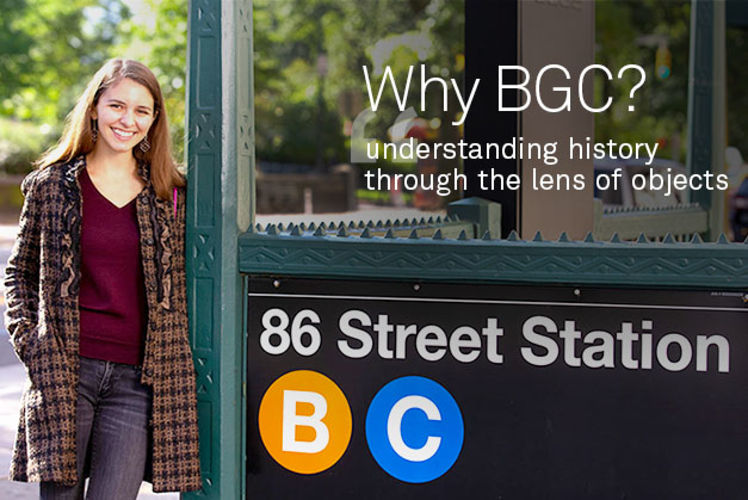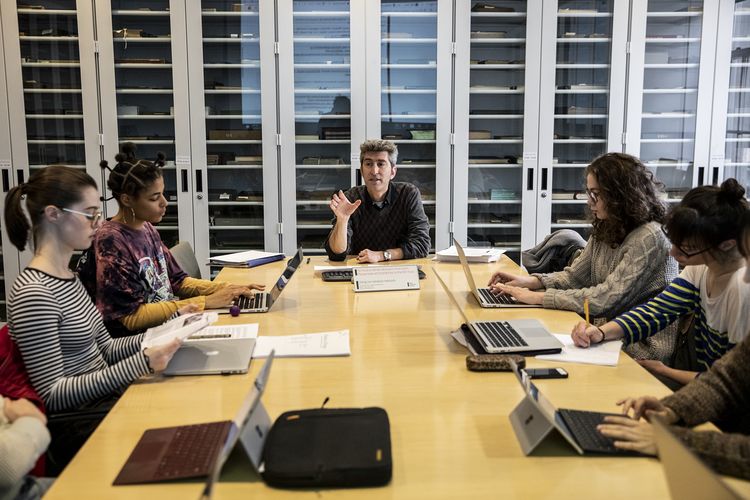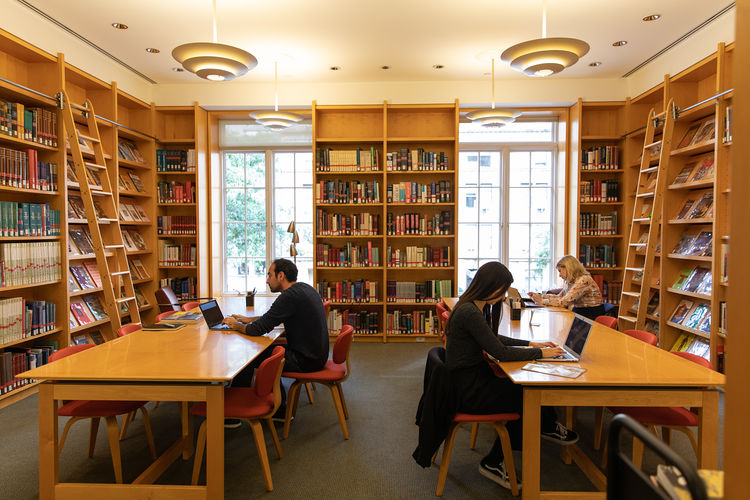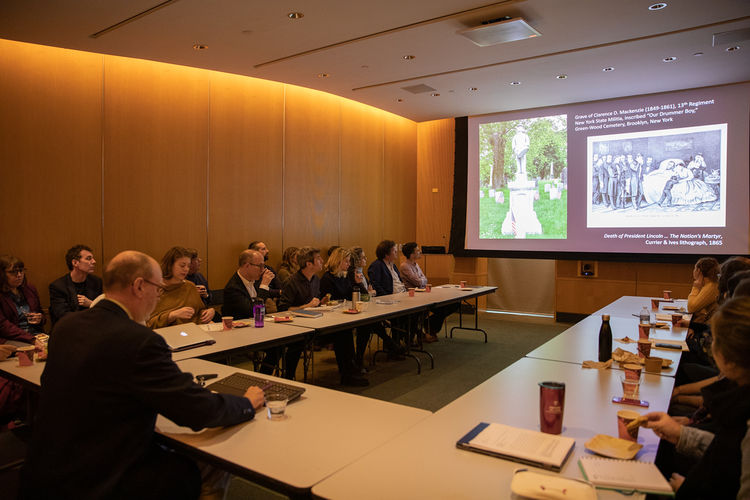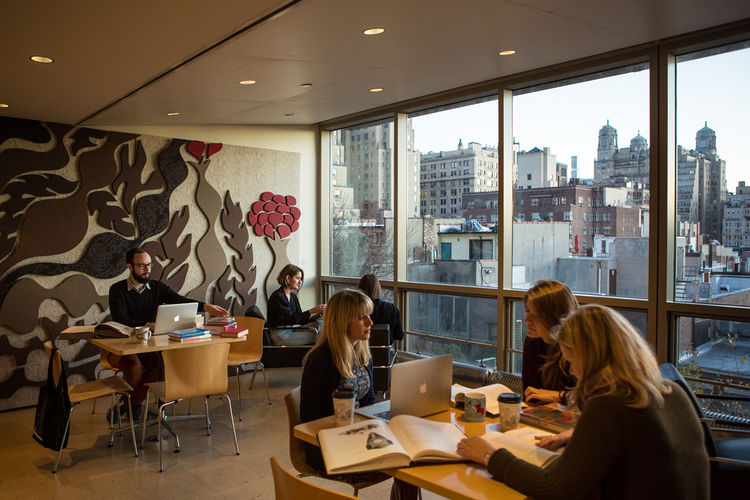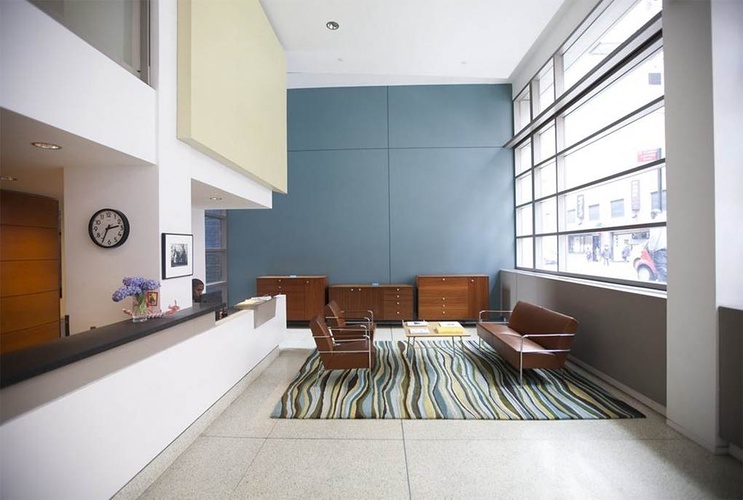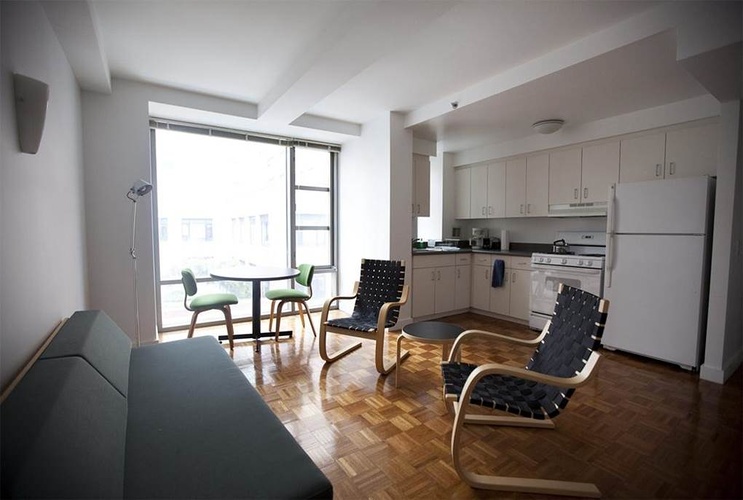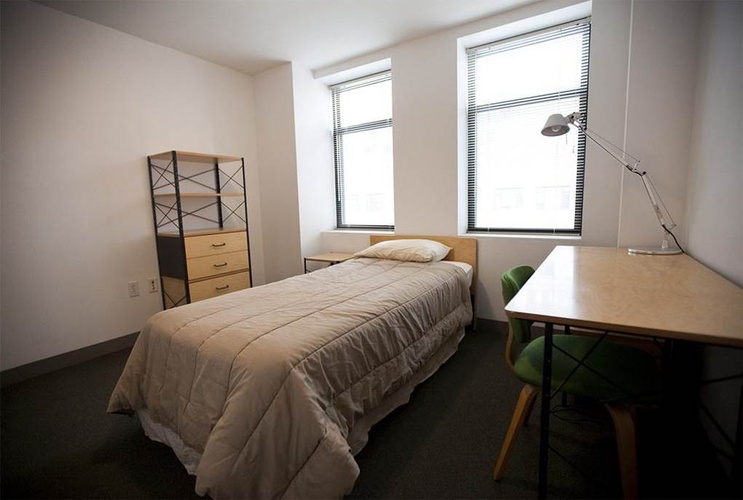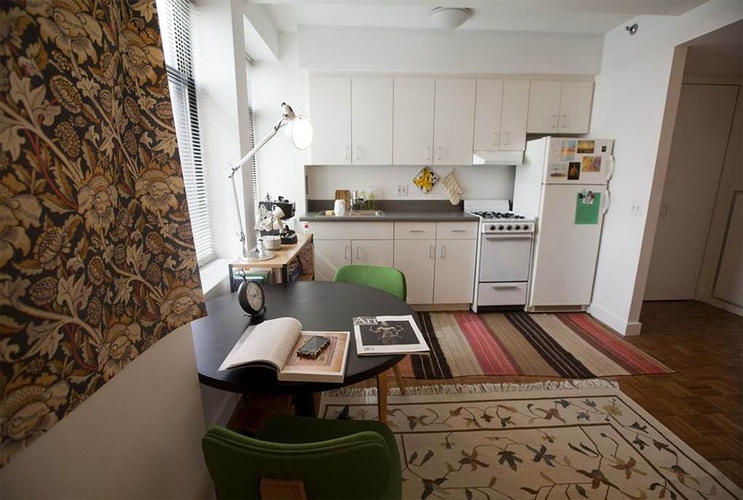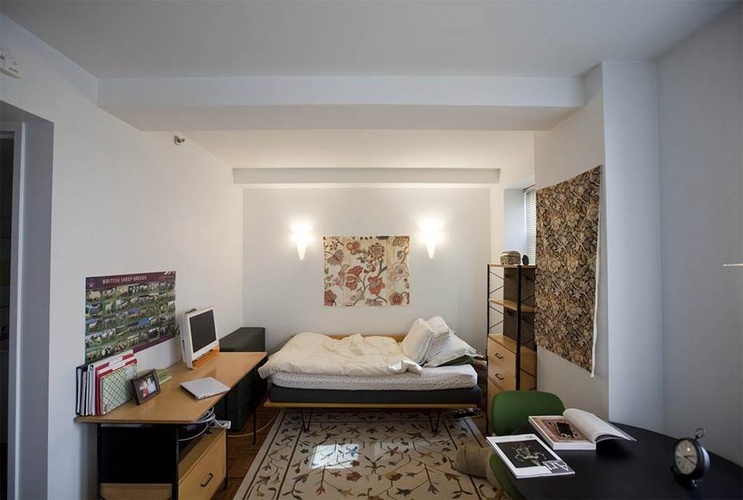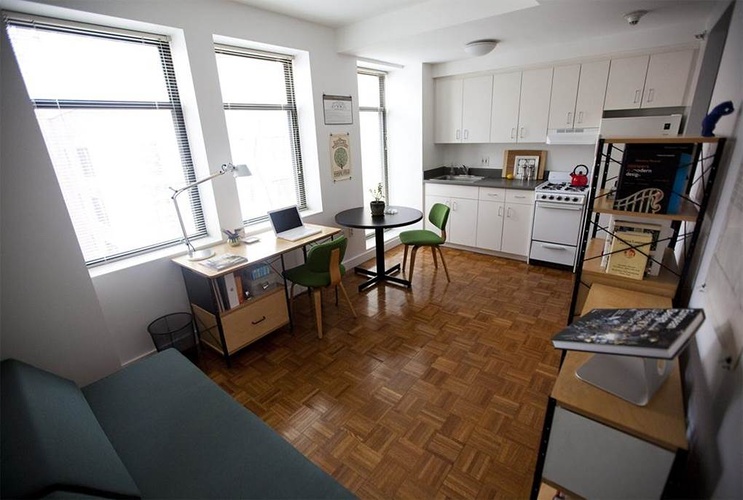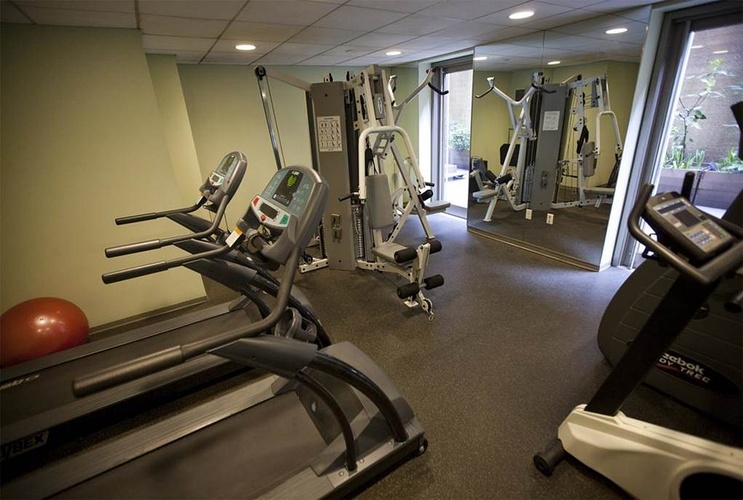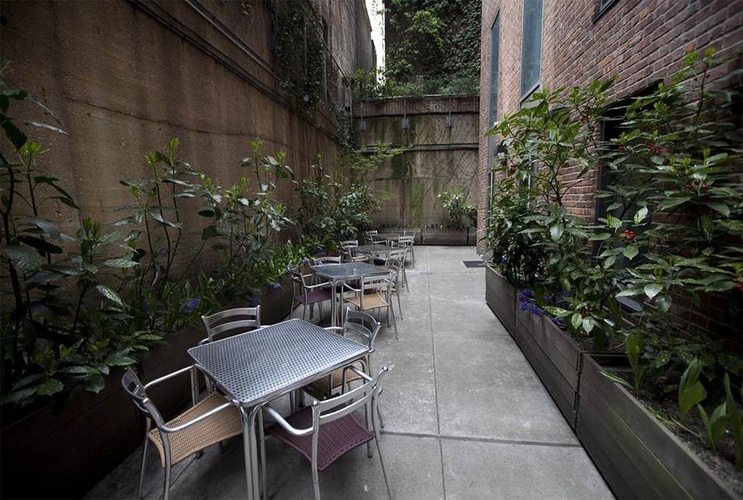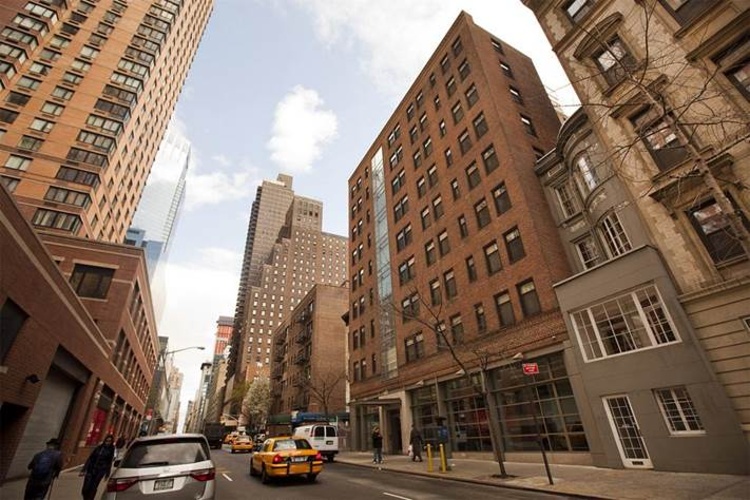MA applications for fall 2026 are due March 1, 2026.
Bard Graduate Center offers MA and PhD degrees in Decorative Arts, Design History, Material Culture. For more than 30 years, our object-based approach to learning has prepared curators, researchers, and educators to ask new questions about cultures, materials, and ideas. Founded in 1993 as a program dedicated to the history of decorative arts, BGC has expanded to include the perspectives of design historians as well as anthropologists, archaeologists, historians, conservators, and philosophers to become the leading institute for interdisciplinary inquiry into material culture.
Meet BGC Faculty and Students!
Our New York City location, on Manhattan’s Upper West Side, gives our students access to some of the world’s richest museum collections within a few blocks’ walk. Affiliations with institutions and their curators, including the Metropolitan Museum of Art, the American Museum of Natural History, Brooklyn Museum, and the Museum of Arts and Design, enrich and expand our curriculum, creating a vital “Cultural Sciences Campus.” Our Study Collection–4,000 objects strong and growing–enables students to examine a variety of objects from around the world at close range within our walls. Our own BGC Gallery hosts ambitious international exhibitions and integrates curatorial and classroom work.
Application requirements
- Application fee of $70.
- A personal statement of approximately 750 words explaining why you are choosing the decorative arts, design history, and material culture as a field of graduate study. The statement should be specific, especially as to career goals.
- Three letters of recommendation from instructors or professional colleagues.
- A sample of written scholarly work (e.g., a college research paper, published article, or extended catalogue entry). This writing sample should be a research paper, academic in form and tone, that exemplifies your best scholarly work. Please include illustrations if relevant. Students who do not have a term paper to submit should consult the Academic Programs Office about the kind of work that is appropriate.
- An up-to-date resume/CV.
- Official transcripts from all postsecondary institutions attended.
- International applicants must demonstrate proficiency in English and should take the Test of English as a Foreign Language (TOEFL). Other evidence of English proficiency will be accepted only with the approval of the Graduate Committee. Our TOEFL number is 5034. We must have these results by the application deadline date.
- Please note: Graduate Record Examination (GRE) scores are no longer required. If you have taken the exam, you can submit scores to report code number 2020. Only official copies will be accepted. Any GRE submitted for admission consideration should not be more than three years old.
Materials sent via hard copy should be sent to:
MA or PhD Admissions
Bard Graduate Center
38 West 86th Street
New York, NY 10024
All application materials submitted become the property of Bard Graduate Center. An application is considered incomplete and will not be acted upon until all materials listed above have been received.
A note for PhD applicants on contacting faculty: Students may contact faculty with whom they are interested in working, but this is not required and it does not impact the admissions process. Prospective students may also attend open houses and arrange campus visits before the application deadline. After an application has been submitted, please contact the admissions office directly for information and updates.
November 9: Open House for Prospective Students (Zoom)
November 16: Open House for Prospective Students
December 15: MA & PhD Applications Due (11:59pm EST)
February 19: Information Session for Prospective Students
March 1: MA Applications Due (Second Date)
March 8: Decision and Financial Aid Information Released (Estimated)
Mid-March: Accepted Students Day (Date TBA)
April 15: Enrollment Decisions Due
Open houses for fall 2025 have finished. We will have a Spring Information Event in spring 2026.
Can’t make it to an open house? Contact us at [email protected] to schedule a visit and building tour. We’re happy to arrange it!
Stay tuned for the fall 2026 schedule.
Tuition and Fees: MA Program
Tuition for 2025–26 is $1,665 per credit. For scholarship information, please see scholarships and fellowships below. A student enrolled full-time in the MA program normally takes 26 credits in the first year and 22 credits in the second year for a total of 48 credits. The number of credits for part-time students varies according to their schedules; however, it is expected part-time students will enroll for a minimum of 6 credits each term. Tuition and fees for a full-time MA program student entering in the fall of 2025 would be:
Year 1: 2025–26
April 15, 2025
- New students’ nonrefundable tuition deposit $515
June 15, 2025
- Fall term tuition (14 credits) $23,310
- Health insurance fee $3,660
- Registration/library fee $340
Dec. 1, 2025
- Spring term tuition (12 credits) $19,980
- Registration/library fee $340
Year 2: 2026–27
June 15, 2026
- Fall term tuition (12 credits) $19,980
- Health insurance fee $3,660
- Registration/library fee $340
Dec. 1, 2026
- Spring term tuition (10 credits) $16,650
- Registration/library fee $340
April 2025
- Graduation fee $120
Tuition and fees are based on 2025–26 rates and are subject to change in subsequent years. The deposit is credited in the fall term. Health insurance fees are based on 2024–25 rates and subject to change. Students who withdraw from the program before the first day of classes in the fall or spring term will receive a full refund, less all nonrefundable charges. If the date of official withdrawal from the program occurs after the first day of classes, tuition is refunded as follows. For the fall and spring terms, if the withdrawal occurs within the first week of regular classes, 80 percent of the tuition will be refunded; within the second week, 50 percent of the tuition will be refunded; after the second week of term, there is no refund. Tuition deposit, registration and library fee, and health insurance enrollment fee are nonrefundable.
Tuition and Fees: PhD Program
Tuition for 2025–26 is $1,665 per credit. After the completion of qualifying exams, you register for the 6-credit doctoral dissertation. Tuition for dissertation registration is $4,750. Funding for a full-time PhD student is for five years. Tuition and fees for a full-time PhD student entering with an MA from a program other than Bard Graduate Center in the fall of 2025 would be:
Year 1: 2025–26 (coursework and exams)
April 15, 2025
- New students’ nonrefundable tuition deposit $515
June 15, 2025
- Fall term tuition (12 credits) $19,980
- Health insurance fee $3,660
- Registration/library fee $340
December 1, 2025
- Spring term tuition (12 credits) $19,980
- Registration/library fee $340
Year 2: 2026–27 (coursework and exams)
June 15, 2026
- Fall term tuition (12 credits) $19,980
- Health insurance fee $3,360
- Registration/library fee $340
December 1, 2026
- Spring term tuition (9 credits) $14,985
- Registration/library fee $340
Year 3: 2027–28 (propose dissertation)
June 15, 2027
- Fall term tuition (6 credits) $4,750
- Registration/library fee (2 semesters) $680
Year 4: 2028–29
June 15, 2028
- Registration/library fee (2 semesters) $680
Year 5: 2029–30
June 15, 2029
- Registration/library fee (2 semesters) $680
April 1, 2030
- Graduation fee $120
Numbers are based on 2025-26 rates and are subject to change in subsequent years. The deposit is credited in the fall term. Health insurance fees are based on 2024-25 and are subject to change. Students who withdraw from the program before the first day of classes in the fall or spring term will receive a full refund, less all nonrefundable charges. If the date of official withdrawal from the program occurs after the first day of classes, tuition is refunded as follows. For the fall and spring terms, if the withdrawal occurs within the first week of regular classes, 80 percent of the tuition will be refunded; within the second week, 50 percent of the tuition will be refunded; after the second week of term, there is no refund. Tuition deposit, registration and library fee, and health insurance enrollment fee are nonrefundable.
NB–Bard Graduate Center accepts a maximum of 24 credits from other MA work. Doctoral students who complete their MA at Bard Graduate Center have all 48 credits transferred and follow a different path.
Bard Graduate Center is able to offer generous funding at both the MA and PhD levels. We are committed to assisting students whose personal resources would not otherwise allow them to continue their education at the graduate level. Institutional aid is available in the form of scholarships, fellowships, and campus employment.
For the MA program, nearly all of an incoming class will receive some financial support. Scholarship offers can range from 10% to 100% tuition remission. There are also a limited number of fellowships (research, curatorial, editorial, public humanities, digital humanities, collections) offered at the time of admission. For full-time students, financial aid is available for up to two years only. For part-time students, aid is available for up to four years only. Financial aid packages are automatically renewed at the end of the first year after a review.
The PhD program has a separate funding structure, and applicants are encouraged to inquire with the admissions office ([email protected]) for current levels of funding.
There is no special application for institutional aid, but *all* students who wish to be considered must complete a FASFA by January 15, 2026. Bard Graduate Center’s FAFSA number is 002671. International applicants who wish to be considered for aid should complete the International Student Application for Aid and the Certification of Finances by January 15 (see International Applicants).
Sources of financial support may include, but are not limited to, the following:
Lee B. Anderson Memorial Foundation Fellowship
Supporting outstanding student[s] with an interest in 18th- and 19th-Century American or European Decorative Arts.
Windgate Fellowship in Craft
Supporting MA student[s] with an interest in the history of American craft.
Sybil Brenner Bernstein Endowed Scholarship
Supporting MA student[s] who demonstrates exceptional talent and love of the decorative arts.
Quarter Century Scholarship
Supporting outstanding young scholars whose work and perspectives will broaden the fields of decorative arts, design history, and material culture.
A scholarship given annually to an outstanding student in Textile History
Student apartments are furnished and, depending on size and design, contain a daybed/sofa, small dining table and chairs, desk, bookcase, bed, and chest of drawers. Residents must be enrolled for a minimum of nine credits each semester in order to remain eligible for housing. The monthly costs of the units are:
Studio Unit: $1,632 / month
One-bedroom Unit: $1,960 / month
Two-bedroom Unit: $1,364 / month (per student)
Costs are accurate as of press time and are subject to change.
Bard Graduate Center is an international community and we welcome applicants from around the world. The additional application requirements for those from outside of the United States are:
- International applicants who are coming from programs in which the language of instruction was not English must demonstrate proficiency in English by submitting the Test of English as a Foreign Language (TOEFL) scores. Our TOEFL number is 5034. Exams should be taken by the application due date. Generally, the minimum score accepted is 100.
- International applicants to the MA program will be considered for financial aid. Applicants should complete the Bard International Student Financial Aid Form by the program application deadline (the form is available on Bard’s website). This should be emailed to [email protected]. Applicants in need of a visa must demonstrate that income from all sources is sufficient to cover expenses during the period of residency in the United States. To this end, international applicants must complete a Certification of Finances. Evidence of financial responsibility must be demonstrated by one of the following: affidavit from a bank, certification by parents or sponsors of their ability to provide the necessary funds, or certification by employers of anticipated income. Detailed information will be sent upon acceptance into the program.
What degrees does BGC offer?
We offer both the MA and PhD in Decorative Arts, Design History, Material Culture. Students are able to explore the cultural history of the material world in a wide range of courses and methodological approaches. The MA program is a two-year terminal degree consisting of coursework, an internship, and a qualifying paper. The PhD program is typically a five to seven year program, and includes coursework, three field exams, and a dissertation.
Is it possible to do a program part-time?
Yes, and this may be done at both the MA and PhD levels. The MA program may be completed in four years as a part-time student. Please note that though part-time students for both programs are eligible for financial aid, it may be at a reduced level.
I saw your classes listed online. Is it possible to sit in on one?
No. All students must be enrolled in either the MA or PhD program in order to register for classes at BGC. Students in select graduate programs around New York that are part of our consortium may also take classes.
Is there a foreign language requirement?
Not for admission into the program, but all MA students must pass a timed translation exam in either French, German, or Spanish (or another language by petition) before they begin their second year. Doctoral students must show proficiency in two languages, typically French, German, or Spanish, but other languages may be substituted depending on research areas. Doctoral students must fulfill this requirement by the time they have finished their coursework and exams.
Are GRE scores required?
No, GRE scores are no longer required. We will still consider scores less than three years old if an applicant wishes to submit them as part of their application.
Are there required courses for the MA and/or PhD program?
Yes. All MA students take the year-long course “Objects in Context: A Survey of the Decorative Arts, Design History, and Material Culture,” its companion seminar “Writing Objects,” and the one-semester “Approaches to the Object.” MA students also satisfy a chronological and geo-cultural distribution requirement. Additional requirements include completing a professional internship and satisfying a digital project requirement.
Doctoral students may be required to take “Objects in Context” and “Approaches to the Object”, depending on their background. They do not have distribution, internship, or digital project requirements.
Applicants should only complete one application. If you want to be considered for the MA program in the event that you are not accepted into the doctoral program, you can indicate that as part of the PhD application. Please note that applicants will be contacted by the admissions committee if we are able to interview you for the MA program.
How does the Admissions Committee determine acceptance and when can I expect to hear?
After a careful first-round review in January, a select number of applicants are invited to an interview with the Admissions Committee. After the interview process is complete (usually early February), there is an admissions meeting (usually mid-February) and final decisions are made based on the applications and the interviews.
If I am accepted and haven’t yet visited Bard Graduate Center, will there be an opportunity for me to meet students and faculty before I make my decision?
Yes, we hold an accepted students day for all students accepted into the MA and PhD programs in March. We also encourage prospective students to visit us at one of our Open Houses during the fall semester, but if you can’t make it, you may schedule a visit anytime by emailing [email protected].
Aside from the financial aid available, are there other on-campus opportunities to earn money while I am student?
Yes, most students work campus jobs during their time here. From working in the Library, the Gallery, the Digital Media Lab, Public Programs and Education, and Development office, there are a wide range of opportunities. Students may also work as Faculty Assistants, and work staffing public events.
As a prospective doctoral student, am I expected to contact a potential dissertation advisor before applying to the program?
PhD students are not expected to enroll with a primary advisor already decided. There are three semesters of coursework and exams to complete in your first two years. We expect you to have fields of research interest, and faculty with who you would like to work, but we do not expect you to narrow it to a single advisor at the point of admission. Students may contact faculty with whom they are interested in working in advance, but this is not required and it does not impact the admissions process. After an application has been submitted, please contact the admissions office directly for information and updates.
Further questions about your application?
Contact Keith Condon, Director of Admissions and Academic Affairs, at 212.501.3056 or [email protected].
